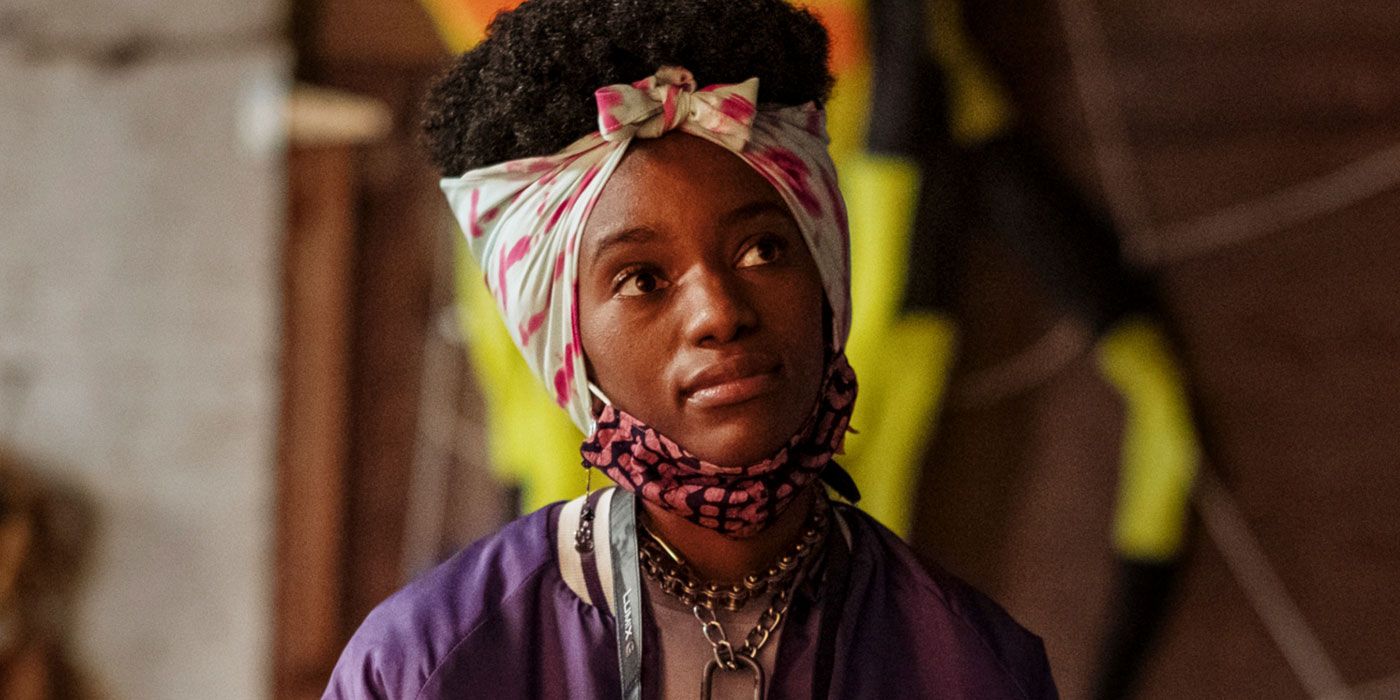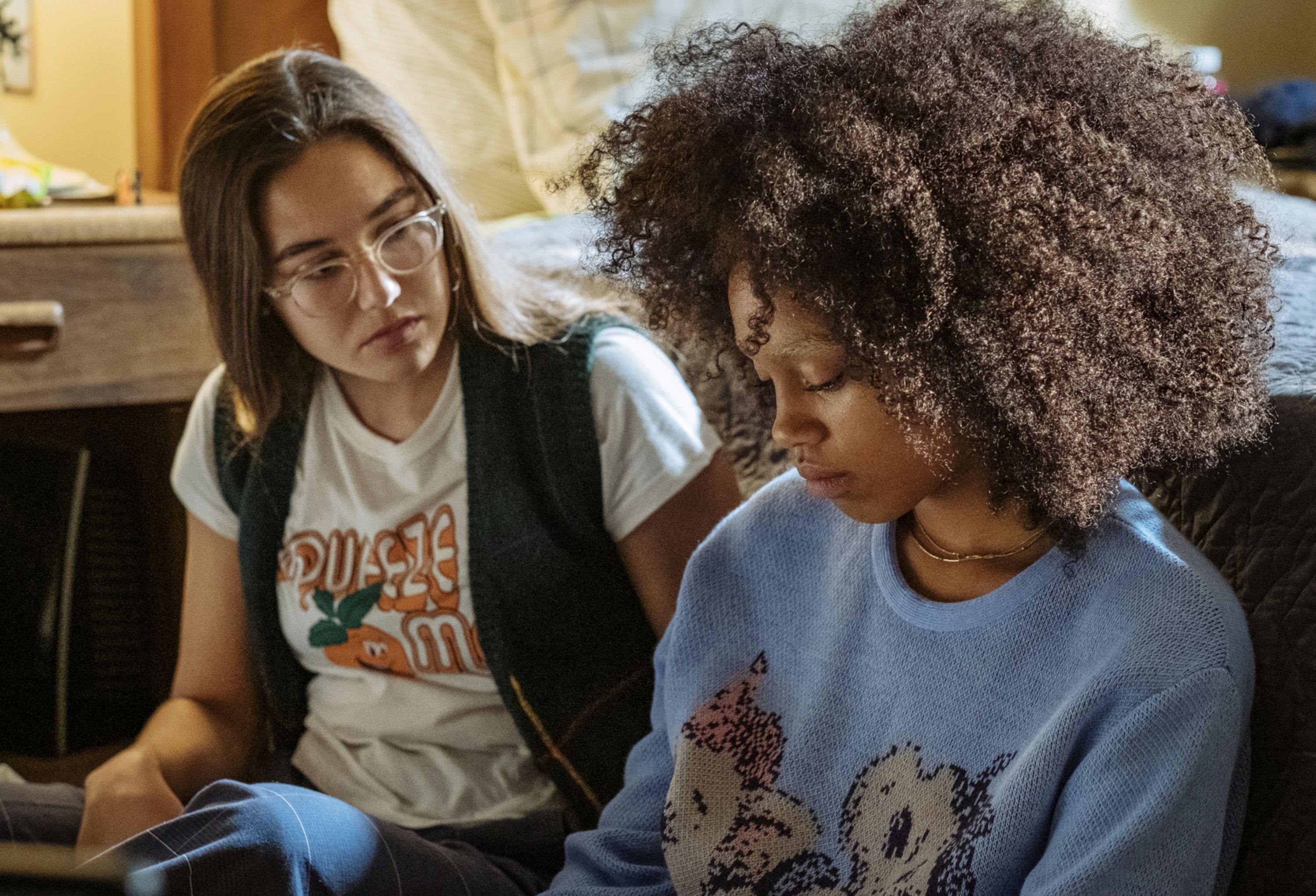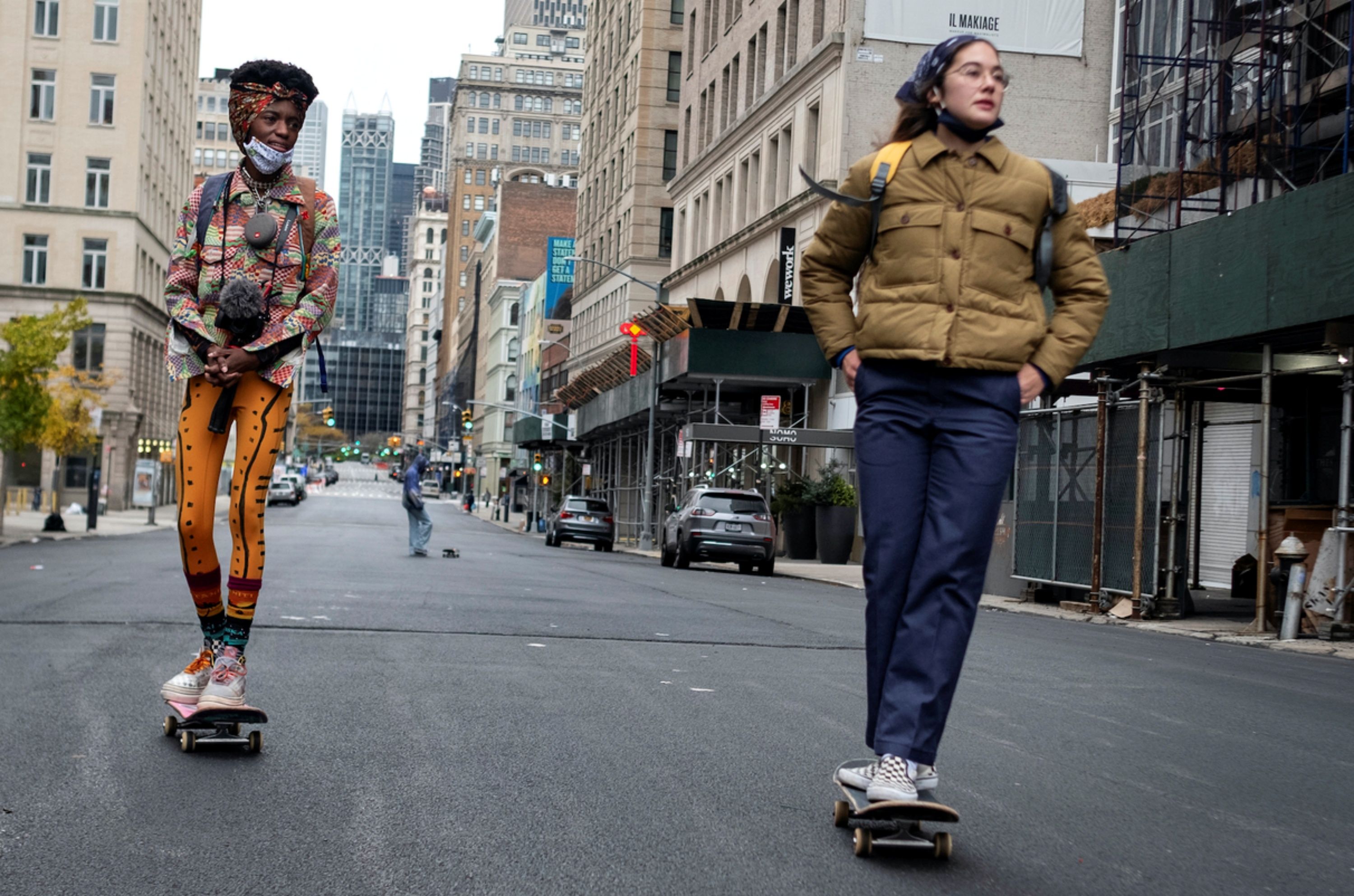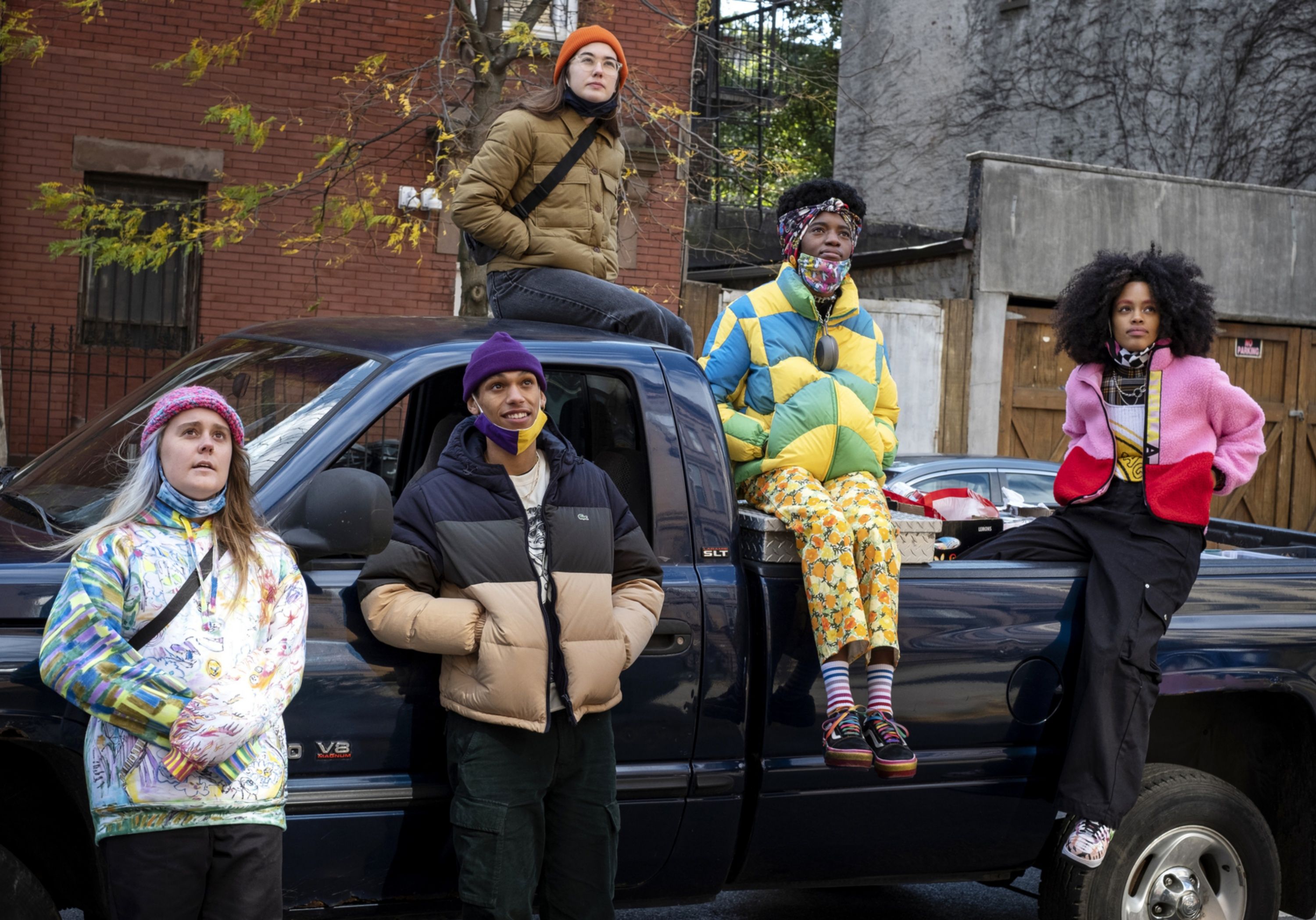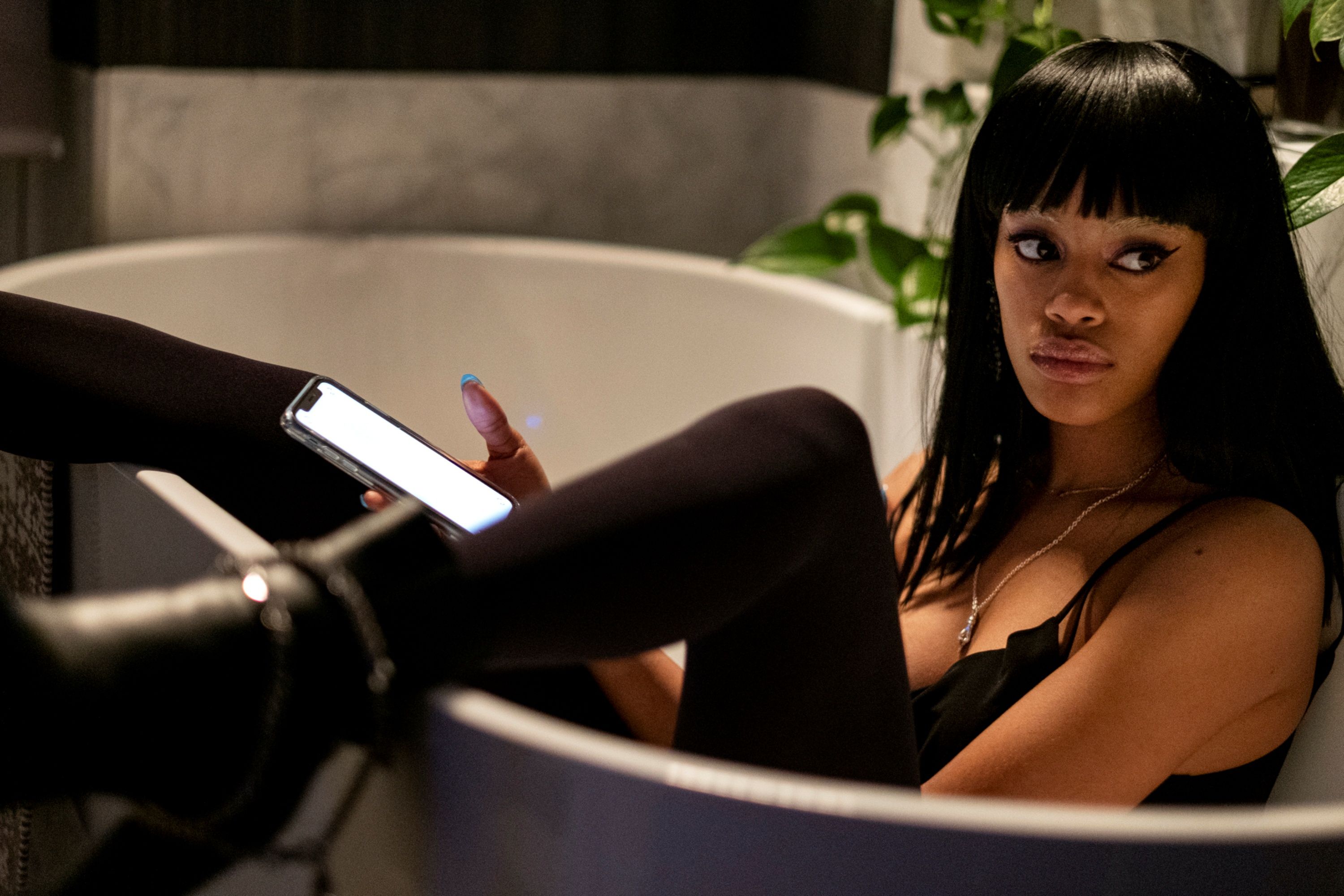Based on the 2018 Sundance hit Skate Kitchen, from creator Crystal Moselle who’s also the showrunner and director of the HBO series, Betty follows five young women on their own journeys of self-discovery in New York City. While the skateboarding scene they’re a part of is still very much male-dominated, Camille (Rachelle Vinberg), Kirt (Nina Moran), Janay (Dede Lovelace), Indigo (Ajani Russell) and Honeybear (Moonbear) each carve out their own place in that world, as they navigate new pressures of adulthood.
During this 1-on-1 interview with Collider, filmmaker Moselle talked about how there’s endless material to keep making this show with, how they approach each season, always searching for the realism of the story, just how improvisational things get, how she came to share a writing credit with Vinberg on one of the episodes this season, the complications of shooting in a COVID world, and what she’s working on developing next.
Collider: When you finished the first season of this, did you have a plan for a second season? Had you thought about that when you were doing the first season, or were you just trying to think about getting one season of the show finished?
CRYSTAL MOSELLE: We always have ideas and things that have happened and themes that we want to touch upon that don’t get explored, and then we’re like, “Oh, cool, then we have more time to do it.” Also, the girls’ world is so perfect for discussing a lot of these things that are happening in the world right now. I’m the type of person who just keeps moving forward. I don’t really worry about it. I’m just like, “Do you wanna do Season 2? Let’s do it.”
Was there any point in Season 1 where you thought about how many seasons you might be able to do this for?
MOSELLE: I know that there’s endless material, so exploring them more and going deeper into their world and who they are is always interesting to me, at least. I think they represent such an important group of women in this time and they’re fighting for women’s rights in such a subtle way that it’s almost like a sixth sense to them. They’re not openly activists. I think Janay definitely is more than some of the others. Every woman is an activist these days, to survive every day of our lives. They’re just representing all women that are doing things a bit different. When you do things a bit different and you’re trying to change things, every day can be a struggle.
After doing a second season, do you feel like you still have more story to tell and explore with this? Have you thought about more seasons?
MOSELLE: Yeah, we have ideas for more seasons, for sure.
This is one of those shows that always leaves things up in the air, instead of tying everything up in a bow.
MOSELLE: My background is in documentaries, so there’s this realism that I’m always seeking, obsessively, when I recreate things in a way that feels like it’s happened for the first time. I think a lot of that is about imperfections because life is imperfect. There is a story wherever you go. You can find a story in anything. There’s this rawness that I’m always seeking out. It’s very instinctual and intuitive because, if you think too much about it, it won’t actually present itself. You’ve gotta let things just be what they are and capture it. Of course, we have a script that we’re going off of and we have a writers’ room, and then we have these rehearsals with the girls. For us, I feel like we’re always just trying to make sure that it feels like it’s their world.
How improvisational is the show? Are the conversations always fluid, in that sense, as far as the dialogue goes?
MOSELLE: There are levels. We have the writers’ room, and then we present the scripts to the girls and they read them. And then, we go through the scripts and talk about what’s working and what’s not. And then, there’s a rehearsal where we then do it again. And then, we rewrite stuff because what we find in rehearsal is always magical. And then, after that, on set, we’ll do a few takes of the actual script, but then we leave room at the end for them to do an improvisational version of it. Sometimes if it feels stiff, I’m like, “Throw out the script. What happens in this scene? What are you going after? What’s happening here?” I think that really helps the realism comes through. And then, it’s just a edit between all of that stuff.
Since you’re not telling a story that has an over-arching mystery for a season, this really is more about individual character journeys and where they cross paths with each other. As you’re figuring out what the season will be, do you look at each character individually, and then figure out how they fit together, or do you think about the season as a whole?
MOSELLE: We usually come up with an over-arching idea for the season. We’ll be like, “What is the situation they’re gonna be in?” This season, they need to find somewhere to skate because it’s getting cold. It was that simple. So, we’ll talk about that for a bit. And then, we’ll actually just start to go into each individual arc and arc each girl out, and then figure out how to mash them together, and then figure out how they all work together. It’s just like a giant puzzle.
Does it also feel like there’s a freedom in telling a story that feels open-ended, and that doesn’t necessarily have to feel resolved?
MOSELLE: Yeah. It’s funny because I just don’t really know any other way. I don’t even realize that my work is like that. I don’t have a plan like that. I’m just like, “Okay, this needs to feel a certain way.” When it feels too put together, it actually makes me feel uncomfortable. I think I have this thing inside me that’s like a switch that goes off and says, “Nope, this isn’t right.”
How has your relationship with these girls grown and evolved and changed, over your years of working with them?
MOSELLE: When I first met them, one of the first days they came over to my house, I was just working so hard, at that point. Every minute was filled with having to do something. They came over to do rehearsals at my house for the short, and then afterwards, they didn’t leave. They hung out. They were like laying on the couch drawing and hanging out in the kitchen. They were young, like 18 or 19 years old. When I first met them, we hung out a lot. I only hung out with them, for a long time. But then, as time goes by and they’re getting older – they’re 23 this year – they have their own lives now. It’s all good. We check in every once in awhile. I definitely have to check in when we’re actually doing work together because, for me, I’m inspired by them and their experiences. They’re a part of it. That’s why they’re consultants on the show.
You directed all of these episodes, but you only have a writing credit on Episode 4, and you share that credit with Rachelle Vinberg. How did that come about, on that episode specifically?
MOSELLE: Rachelle’s writing credit on the show as long overdue. She’s such an incredible writer. They all have so many ideas. Rachelle goes to school for screenwriting. I think she’s probably gonna be the next Greta Gerwig. She acts, she directs, she makes things, and that’s something that she really enjoys. For me, as a showrunner, writer, producer, and all of that, I’m really good at bringing ideas together. It’s a funny thing because I almost feel like everybody in the writers’ room deserves a credit on every episode because we’re all writing every episode together. Of course, we jump off and do things, but it’s very collaborative. I knew that Rachelle really wanted the chance. She had sent me a few scripts that she wrote, and I gave them to HBO. I said, “Rachelle wants to co-write this episode with me,” and they were totally fine with it. They took her material and they trusted the situation, and it turned out great.
This season, each of the characters is struggling with something and each of them has to decide what the right thing is for them. What did you most enjoy about what you were able to do with these characters this season?
MOSELLE: I think every time we create a new project together, you’re peeling off the layers and going deeper. They’re also growing up, so there are a lot of growing pains and self-reflection. Everything that we do together, it’s another step.
At what point in the process of the season did you have to start figuring out how to exist in a COVID world? Were there conversations about how you were going to weave the existence of COVID into the world of the show?
MOSELLE: Yeah. I just felt like it was a good idea to include it because we just had know idea what the world was gonna be. We started writing this a year ago and I’m about realism, so I needed to go with what the world was, at that moment in time. A lot of people I know have been affected by COVID, so it just made the most sense.
Was there anything that you were most concerned with, as far as the production aspect of the show and dealing with COVID on top of it?
MOSELLE: It was rough. Wearing a face mask for 14 hours a day is crazy, but obviously important. It was not ideal.
I love a good Halloween episode. I love any time characters can be dressed up in costumes, for any reason. Was that hard to do, with all of the people and how much more crowded the scenes were?
MOSELLE: It was challenging, but nobody got COVID on our set besides me, randomly. It was so weird. I think I got it on the Staten Island ferry or something. We took our protocols incredibly seriously.
Did you set out to do a Halloween episode, or did the timing just work out that way?
MOSELLE: I always wanted to do a Halloween episode. Halloween is my favorite holiday.
I love to just watch people walk around in Halloween costumes.
MOSELLE: I can sit anywhere at any time and just watch people. That’s what I do. When I went to Europe with my boyfriend, we were in Paris and there was a strike at the airport. We were so tired. I was like, “If we stay up all night, then we can sleep all day on the plane.” But then, the flight didn’t work out, so we just sat in the airport and talked about everybody’s outfits for an hour. So, I’m a big observer of people as well.
Some of the scenes inside of their skateboarding space are loud and they have a lot of things going on. How does that influence the way the show gets shot? Are there logistical challenges, when you have so many people and things, all going on at once?
MOSELLE: I’m so used to it, at this point. That’s just second nature. I’m like, “Get the skate cam out and go do some skate cam over there while I do this over here, and I’ll direct both of them.” I like chaos. I like the camera to discover things and feel like it was lucky to be there, at that moment. With my work, I have this inner drive that doesn’t stop. I have a vision and I know how to get there, and then it’s this strange dance that you do to make it all happen.
You’ve gone from directing documentaries to directing narrative projects that have this documentary feel to them. Was that something that you ever actually realized you were doing? Was it an intentional approach?
MOSELLE: I originally wanted the film on the skate girls to be a documentary, but then I got this opportunity through Miu Miu to make the short film. I was in Poland at the New Horizons film festival and I watched this film, called All These Sleepless Nights. It’s this half-doc hybrid film. I think I was putting all of these rules on myself about what something should be, and how it has to be pure and you can’t change the rules. And then, afterwards, I remember walking at night alone and seeing this cool statue of a ballerina girl and in my head just being like, “Go with what you feel. Don’t worry about what you’re supposed to do. Just go completely with how you’re feeling. That’s gonna bring you to where you need to go.” And that’s what I did. I just did that with this project, and now I’m here.
What was it that initially sent you down this career path? Did you set out with the goal and focus of becoming a filmmaker, or did something else lead you there?
MOSELLE: I wanted to be an actor first, when I was in high school. And then, we had this directing program at my school for plays. And then, I got a video camera. I love video and I was into video art. And then, I wanted to be in New York. I was interested in people and documentaries, and stuff like that. I was always a creator of things and a visual artist. I got into school for animation, and right before I was about to go to school, I was like, “What am I doing? I wanna be a filmmaker.” My mom just walked into the Dean’s office at SVA (School of Visual Arts). I don’t even think she had an appointment, she just walked in. My mom definitely taught me a lot about cutting corners and going after things and not worrying about the rules. If you meet her, you wouldn’t think she was a rule breaker, but she always has to take the shortcut when we’re going somewhere, even if it’s not actually shorter. She just has to do things a different way, and I love that about her. So, she just went into the Dean’s office and was like, “My daughter wants to be in the film program. What can you do?” They were like, “Well, she’s gonna have to wait a few weeks.” And she was like, “I think it’s better if she doesn’t wait a few weeks.” And they were like, “Okay,” and let me in. She does it in a very innocent way.
After spending quite a bit of time in this world now, have you thought about what you want to do next? Do you have other projects that you’re also developing?
MOSELLE: Yeah, I have a bunch of projects that I’m developing. I have four TV projects that I’m developing. I have a movie that I’m trying to get off its feet this year. I’m pitching two other movies as well. One film is about my father’s time working in a mental hospital, in the mid-‘70s. He was a music therapist and it was just a very wild time, where the world of therapy and psychiatry was being explored. Now, everybody wants to be a director. Back then, everybody wanted to be a therapist because they were all taking LSD and exploring their minds, and all of that. That’s a project that I’ve been working on.
Is it easier or harder to try to work on something when you have a close connection to it?
MOSELLE: I don’t know because I constantly work on things that I have close connections to. It’s quite hard, but I don’t know if it’s easier on the other side. I’ll let you know when I work on something that I don’t have a close connection with.
Betty airs on Friday nights on HBO, and is available to stream at HBO Max.

